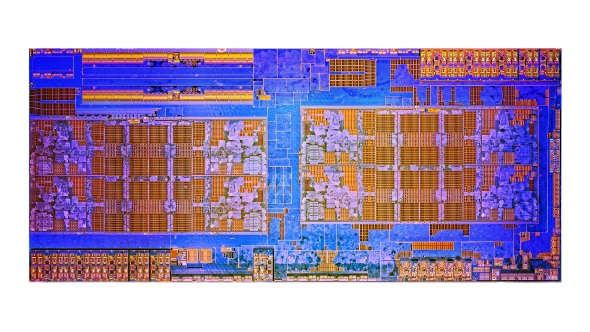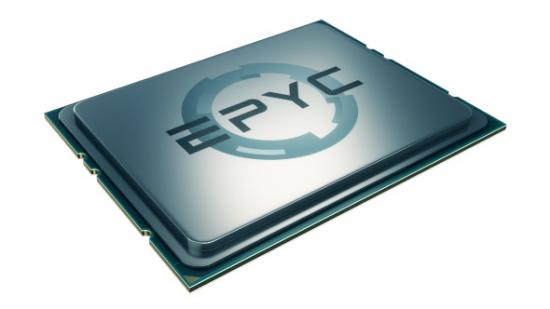It seems the core count clash between AMD and Intel is far from over, with the latest rumours expecting AMD to bring a monstrous 64 cores to their next generation of EPYC server processors.
Here’s the best gaming CPU on the market.
AMD haven’t been shy with core counts this last year, Ryzen offered up to eight cores and 16 threads, and HEDT Threadripper chips offered a plethora of cores and threads – up to 16 cores and 32 threads on the top 1950X chip. For the server folks, AMD continued this core craze, upping the count to 32 cores with EPYC.
The latest rumours (with a grain of salt) from Canard PC Hardware expects AMD to push things even further for the server chips. The next-gen EPYC processors are expected to break into triple-digit thread counts, with 64 cores and 128 threads.
To compensate for the doubling of core count, AMD are supposedly including 256MB of L3 cache – a vast improvement over the 64MB on the current generation 700-series EPYC parts. It’s likely that AMD’s plans for a 7nm process will be the key to these massive core counts and L3 cache sizes, as this memory is going to take up considerably amounts of precious die real estate even on the denser tech.

The next-gen EPYC processors are also expected to feature eight-channel DDR4-3200 memory support, and up to 240W TDP. The low TDP per-core likely thanks to the power efficiency gains of a 7nm architecture.
128 lanes of PCI 4.0 are also expected to make their debut appearance for AMD, doubling the speeds offered by PCIe 3.0, with a transfer rate of 16GT/s. Lanes are expected to go a lot further with the latest spec, with fewerlanes offering a much higher bandwidth. Hopefully consumers can get their hands on this speedy standard not too far down the road. PCIe 5.0 specifications are now under way for 2019, leaving a much smaller window compared to the long-standing PCIe 3.0. Get moving, tech manufacturers.
If these rumours ring true, and if these features trickle down to consumer products, AMD are looking strong for their next-generation architecture. In the meantime, we have the 12nm Zen refresh to look forward to, likely launching at the beginning of 2018 with AMD’s Pinnacle Ridge processors.
